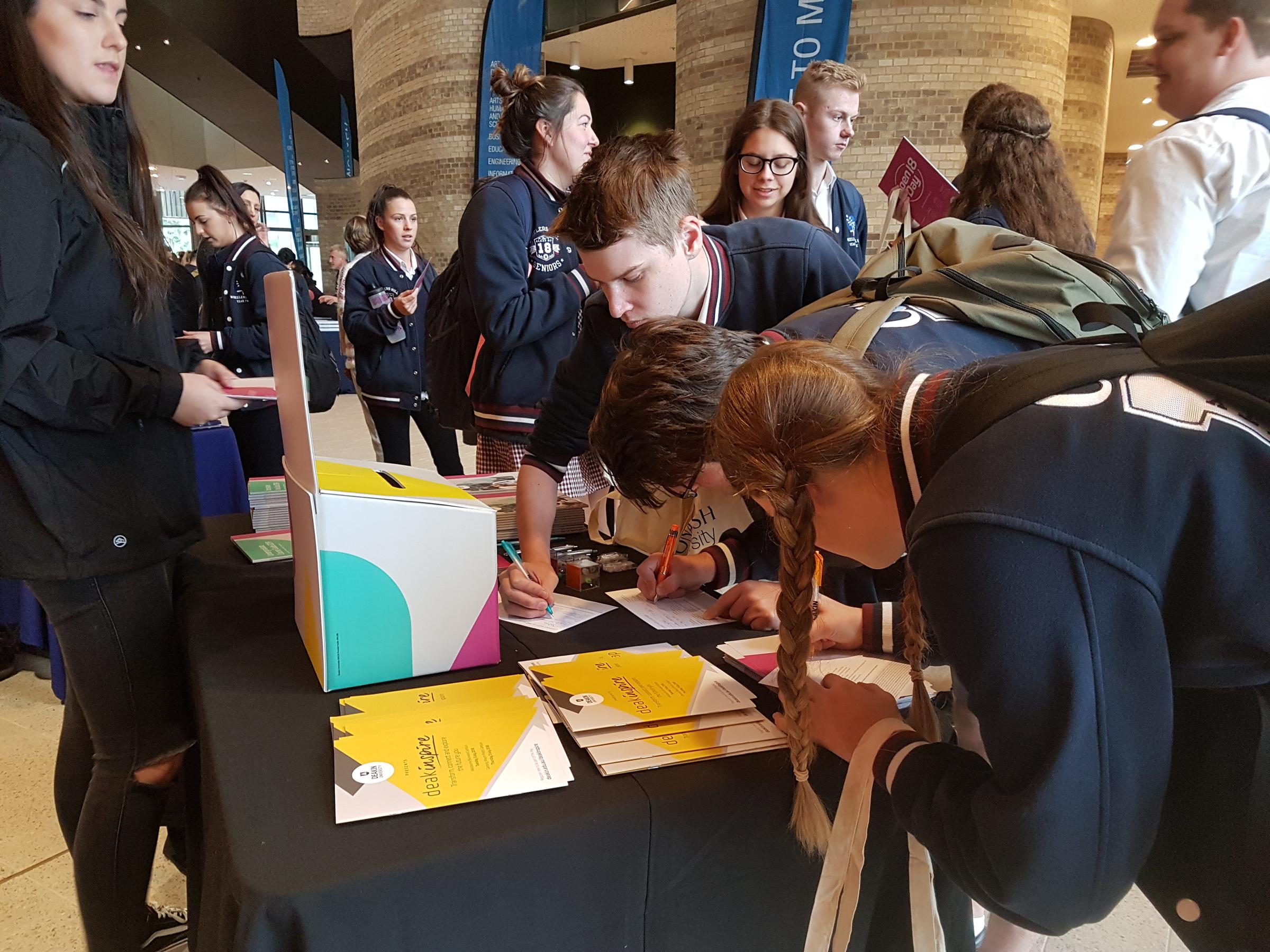Senior School

SENIOR SCHOOL UPDATE
YEAR 12
The year is rapidly coming to a close for our Year 12 students. Next Tuesday (23rd October) is their final day of classes, with the Farewell Assembly being held during Period 2 on Wednesday 24th. The VCAA examinations begin on Wednesday 31st October with English.
Many of our students took the opportunity to attend the trial examinations that were held during the first week of the September holidays, receiving valuable feedback from their teachers or the external markers. They now need to take note of the advice and feedback given and work towards achieving their best.
We wish all of our Year 12 students the best of luck for the upcoming examinations.
NISA'S TIPS FOR STRESS-FREE STUDY
Published on Youth Central (http://www.youthcentral.vic.gov.au)
Before the exam
Here are some basic pre-exam tips to help you minimise stress and maximise effective study.
1. Don't cram
Studying the night before an exam causes the level of stress in the body to increase. Unfortunately, this stress doesn't decrease when you go to sleep. The best way to reduce anxiety is by taking the night before an exam off to relax: watch TV, talk to a friend, read a novel.
If you're one of those people who become anxious because of not studying the night before an exam, then simply review the main points of your subject earlier in the day and leave the night free for other things.
Note that it is assumed that you have already done some study leading up to the night before your exam.
2. Avoid stressful people
Stress is contagious, so resist the urge to have a study session with your apprehensive friends before an exam, especially if they're complaining about all the work they have left to do and pulling their hair out.
Their stress will only add to your stress and make you doubt yourself, even if you know that you will be fine.
3. Eat well
Good nutrition is a leading factor in a student's academic achievement. A well-balanced diet can help transform a nutritionally imbalanced student into a healthy and dynamic one.
And of course, having breakfast before an exam is a must for a student who wants to focus and be most efficient during their exam.
4. Watch your caffeine intake
Nothing drives up your stress level faster than not being able to fall asleep the night before an exam, so avoid beverages like coffee, or high energy drinks like V or Mother unless they are decaffeinated.
5. Avoid hangovers
Do your best to avoid alcohol the night before your exam because a bad hangover is the very worst thing to be suffering from in an exam room.
6. Prepare to be prepared
Before going to bed the night before an exam, make sure to collect together everything that you will need for the exam - this could include:
- Pens
- Sharpened pencils
- Ruler
- Eraser
- Calculator
- Your lucky shirt
- Water bottle
- Tissues
- A watch
Double (and even triple) check the time of your exam and location. Allow plenty of time for problems like lack of fuel and traffic on the way, making sure to arrive with time to spare so that you go into your exam calmly rather than in a frantic rush sweating.
7. Zzzz
Staying up all night before an exam is the worst thing one can do. You reach a point where your productivity eventually declines, so sleeping is a must to have a refreshed mind the next morning.
Regular sleep is the best ways to control exam stress. Students who follow a regular sleeping pattern have been shown to perform much better than students who stay up late.
Also, don't forget to set your alarm clock the night before!
During the exam
Okay, so you've done everything you can to get prepared in the lead-up to your exam. But how do you avoid stress on the day of the exam itself?
8. Focus
As you work on your exam, focus only on the exam and not on what other students are doing. There will always be students in the same exam room as you whose aim is to annoy and distract others and not to concentrate on the exam they barely started.
If you are the kind of student who taps their pencils, clicks their pens or makes sounds with their mouths due to exam anxiety, be considerate as it may be really distracting to others. Don't do to others what you wouldn't want to be done to yourself.
9. Start strategically
Begin your exam by skimming through the questions quickly and note down any initial thoughts or related memorised facts beside each question. You don't always have to start at the beginning if you know another question better. Start with the questions you know best. This will boost your confidence and get you off to a good start.
Don't forget to spend more time on heavier weighted questions.
After the exam
Finally, it's over! You've worked hard and done your best and now it's time to put the exam out of your mind entirely. Remember - the things that you do after an exam are just as important for dealing with stress as the things you do before and during.
10. Spoil yourself
Reward yourself as soon as the exam is over. If you do not have any other commitments, go out and do something like seeing a movie with a friend. If you have other exams to study for, it's better to postpone for a larger treat. Nevertheless, thirty minutes for a coffee with a friend or a quick swim in the pool will definitely give you the boost needed for the next exam.
Good Luck!
Mrs. J. Riddoch
Senior School Leader
